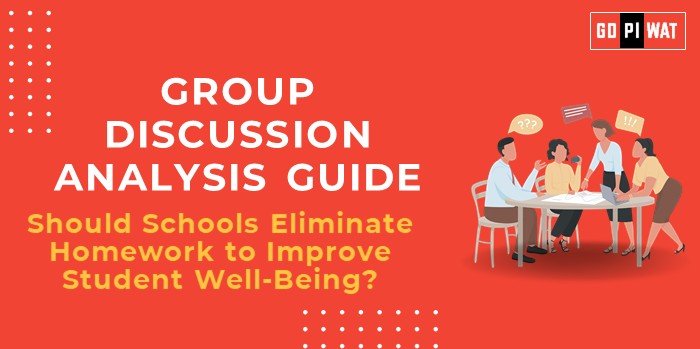📚 Should Schools Eliminate Homework to Improve Student Well-Being?
🌟 Introduction to the Topic
Homework has been a cornerstone of education, yet its role in student well-being is increasingly debated worldwide. Many argue it enhances discipline and learning, while others see it as a source of stress and diminished creativity.
Homework policies have varied greatly over decades, shaped by cultural, societal, and academic priorities. In recent years, a global focus on mental health has spotlighted the need for balance between academic rigor and student well-being.
📊 Quick Facts and Key Statistics
🌍 Global Homework Trends: Finnish students, with minimal homework, outperform many nations in global education rankings (PISA, 2021).
📚 India: Average homework load for secondary students: 2.5 hours daily (NCERT, 2022).
😴 Sleep Deprivation: 72% of high school students cite homework as a factor in sleep loss (Sleep Foundation, 2023).
👥 Stakeholders and Their Roles
- 🏫 Schools and Teachers: Design and enforce homework policies; evaluate alternative methods.
- 👨👩👧 Parents: Play a dual role as supporters and critics of homework’s impact on family time.
- 🎓 Students: The primary group experiencing both the benefits and burdens of homework.
- 🏛️ Policy Makers: Establish guidelines balancing educational outcomes and mental health.
- 🧠 Psychologists and Researchers: Provide data on academic performance and well-being correlations.
🎯 Achievements and Challenges
✨ Achievements:
- 📘 Encourages Responsibility: Fosters discipline and time management skills.
- 📈 Reinforces Learning: Supports classroom learning, particularly in STEM subjects.
- 📊 Higher Test Scores: Correlation with improved academic performance when appropriately assigned.
⚠️ Challenges:
- 🧠 Mental Health: Excessive homework linked to anxiety and depression.
- ⚖️ Equity: Students without home resources face disadvantages.
- 🎨 Creativity and Physical Activity: Reduced time for hobbies and exercise.
🌍 Global Comparisons:
🇫🇮 Finland: Prioritizes minimal homework, focusing on class engagement.
🇯🇵 Japan: Limits daily homework hours, emphasizing extracurricular balance.
💡 Case Study:
- 🇮🇳 Delhi, India: Pilot “No Homework” policy in select schools resulted in 15% higher engagement levels and reduced stress among students (2022).
🗣️ Structured Arguments for Discussion
- ✔️ Supporting Stance: “Eliminating homework fosters holistic development, enabling students to pursue interests, reduce stress, and improve well-being.”
- ❌ Opposing Stance: “Homework is essential for reinforcing learning, especially in competitive academic environments where knowledge retention is critical.”
- ⚖️ Balanced Perspective: “Homework can remain beneficial if moderated and designed to enhance creativity and critical thinking without overburdening students.”
💡 Effective Discussion Approaches
🚀 Opening Techniques:
- 📊 Statistical Start: “With 72% of students citing homework as a stressor, should we rethink its necessity?”
- 📖 Case Study Hook: “Finland’s minimal homework approach raises questions about our reliance on traditional practices.”
🛡️ Counter-Argument Handling:
- 🤝 Cite cases like Finland’s success or studies showing diminished learning disparities without homework.
- 💡 Highlight the need for differentiated approaches rather than blanket policies.
🔍 Strategic Analysis of Strengths and Weaknesses
- ✔️ Strengths: Can teach discipline and responsibility; strengthens the student-teacher connection via feedback.
- ❌ Weaknesses: Overemphasis leads to burnout; disadvantages students without parental support or resources.
- 🌟 Opportunities: Innovate with project-based assignments; leverage technology for personalized learning.
- ⚡ Threats: Resistance from traditional education proponents; risk of widening achievement gaps without supplementary resources.
🎓 Connecting with B-School Applications
📈 Real-World Applications: Innovative project designs emphasizing mental health in education systems; case study integration for leadership roles in education policies.
🤔 Sample Interview Questions:
- How can educational policies balance academic rigor with student mental health?
- What role can technology play in reinventing homework for today’s students?
✨ Insights for B-School Students:
- Understand stakeholder perspectives to craft inclusive policies.
- Explore the impact of educational reform on productivity and innovation.


